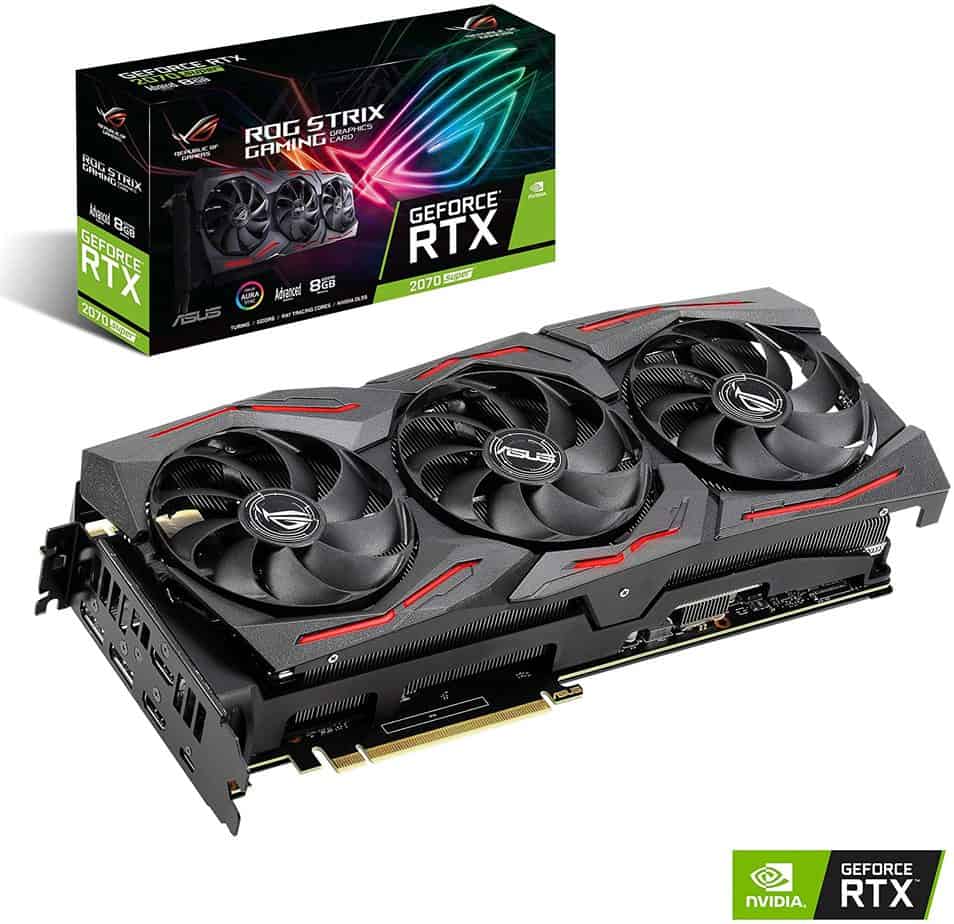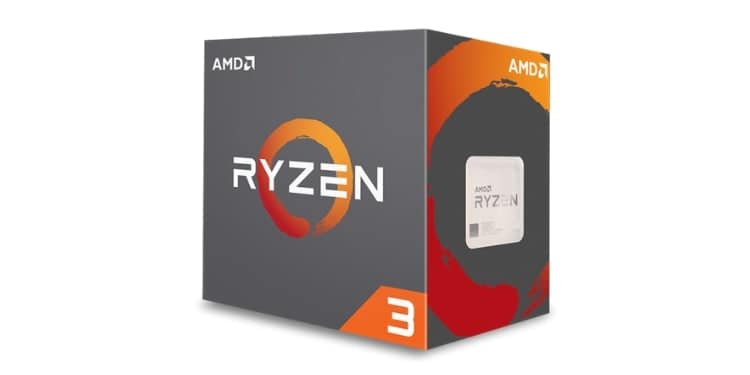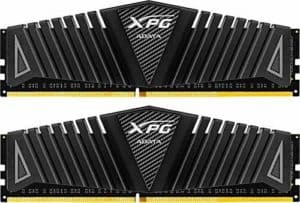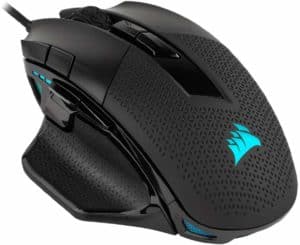What Do You Need To Start Playing Esports
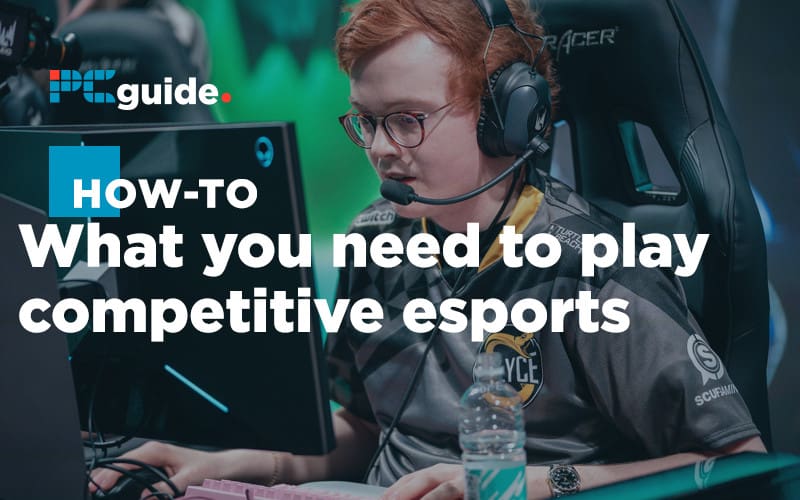
Table of Contents
When it comes to video games most people take it as far as a beloved hobby and leave it there. Sure, there are some incredible home gaming setups out there, and even some dedicated casual gamers who produce some incredible videos – but there is only one place to take your gaming skills if you feel like you can't be beaten: The world of esports.
Esports is where gamers go to compete on a professional level in the games that they love. Both online and face to face matches where two gamers (or two teams of gamers) pit their skills against each other in the hopes of winning glory, validation, and of course the prize pot for whatever tournament they are competing in.
The thing is, you can't just jump into esports on your 5-year-old gaming rig and expect to be at a level with gamers already in the esports scene. You are going to need some modern kit to stand a chance at bringing home the prize money, but what could that mean?
We're here to help you out. Find out what kind of PC, what kind of monitor, and even what kind of mouse you need to play esports.
Your Graphics Card
We know that a lot of people reading this article are just going to skip to this point anyway, so I'm going to put it at the top. Before you finish this point and stop reading though, just know that a graphics card is only as good as the PC you build around it – don't think you can buy yourself a 2080ti and slap it into a 10-year-old PC case with an 8-year-old motherboard and CPU and expect good things to happen.
With that last paragraph in mind then, let's talk about budget. If you are going to be building a whole PC for your esports career then keep in mind that it's a rule of thumb to allow half of your budget for the GPU. So keep in mind, if you have $1000 saved up for your esports PC, then maybe $500 of that should go onto your GPU.
And, if we are talking about professional gaming for prize money, then you need a decent amount of cash to buy a well-performing graphics card. You need to make sure that you can achieve at least 144 FPS, as that is the bare minimum that most pro gamers get as they compete. That being said, 240 FPS is what to aim for – but that will require some serious processing power, and take a good chunk out of your wallet.
So, if you are fortunate enough to be able to afford any GPU that you could want, then we are going to recommend the top of the line, obviously. The RTX 2080Ti is the top of the line at the moment, offering a consistent 240 FPS with superior graphics to boot. You probably already heard of this graphics card before you even starting reading this article, but the truth is it's impossible to top by modern standards as far as performance is concerned.
For those who are coming into the world of esports with a set budget on the mind, then there are some great budget graphics cards for esports that won't let you down. The RTX 2070 Super, for example, is an extremely reliable graphics card that will offer you a consistent 144+ FPS, with enough power in it to keep up with modern games and their updates for a long time to come. Plus, it comes a lot cheaper than the 2080Ti, which is brilliant if you are conscious of your spending.
If you want to run through some different options when it comes to graphics cards, then just check out our page on the best GPUs available currently. Lots of good options there, and if you are dedicated to the cause of entering the esports world, then a decent GPU from that list should help you on your way,
Your CPU
When it comes to esports you cannot allow for the chance of a lowered or reduced processing power. This could severely impact the state of your gameplay, something that is unthinkable if you are going to be playing for high stakes.
Basically, aim for a CPU that works alongside the rest of your components and offers the best performance for your money. Intel is a mainstay within the CPU market place, and their i7-8700K is a fantastic option when it comes to gaming, with 6 cores, 12 threads, and is even capable of overclocking.
In fact, we would argue that the i7-8700K is still the best Intel CPU on the market for gaming today and that if you are looking to buy Intel when it comes to your CPU then this should be the ship you go for, as the 9000K only offers maybe 5FPS more in terms of performance for its higher price.
If its AMD you want in your PC though, then you should consider the Ryzen 5 2600X. very balanced in terms of its price and its core performance, this is the best AMD CPU for gaming by far. The thing is though, AMD has always been better CPUs for multi-tasking rather than gaming, and if you are only concerned with building a machine primed to play games rather than anything else, then we cannot recommend using Intel CPUs enough.
Check out our full list of the best CPUs available today for a comprehensive list of options, but for a truly esports ready PC then we can't recommend the Intel i7-8700K enough.
Your Ram
Just like everything else on an esports specification PC, you need to make sure that your RAM is speedy, capable and dependable.
That means not cheaping out when it comes to different hardware that affects the running of your PC in general – including the RAM. RAM is going to have a direct impact on your in-game performance, especially its FPS.
So, you are going to want good RAM, and if you want the best then we recommend the G.Skill TridentZ RGB Series DDR4-4266 – a great bit of kit that is DDR4 compatible, meaning that it is running the most current version of RAM available and is capable of achieving greater speeds.
The G.Skill Trident comes with 16gb of capacity and a speed of 4266MHz as standard – and it's still cheaper than the closest Corsair counterpart – all good stuff. With RAM like this you are never going to have to worry about it holding back your FPS in-game, meaning that you should be able to enjoy uninterrupted high-quality gaming – leading to a properly fair esports experience.
If you are looking to spend a little less on the RAM for your PC, then check out the Patriot Viper 4 16gb RAM kit. It offers a speed of 3000 MHz at the same 16gb capacity and is less expensive than the TridentZ. A great option if you still need the performance of DDR4 RAM, but don't want to bust the bank.
There are of course other options when it comes to the buying the best RAM available, and there are choices available if you want DDR3 RAM in your machine – but really for esports competition, you should be looking at getting yourself DDR4 compatible RAM for the smoothest and most cutting edge gameplay.
Your Internal Storage
SSD. You want an SSD. They operate so much faster and more consistently than the traditional HDD, and if you are playing esports then that quicker loading time could add a hell of a difference when it comes to in-game performance.
That being said, let's assume that you want the best that a reasonable amount of money can buy, and luckily Western Digital's WD Black SN750 is the perfect internal SSD to put in your esports computer.
It offers 1TB of storage, which is a lot and will certainly go a long way in helping you store the games you want to play easily, whilst allowing them to load seamlessly.
Basically, an SSD is the only way to go if you are looking for gameplay that isn't hindered by load times or an unreliable hard drive in your computer – in fact, they are fast becoming the industry standard for PCs on the whole. Check out our list of the best SSDs available today for a more comprehensive look into what's possible with SSDs at the moment – but for esports, we recommend the WD SN750.
Your Case
When it comes to your PC case, there is a lot to consider when it comes to esports. Obviously, everyone wants a great looking case, but when you are looking to play games competitively you also need to consider the airflow of your case as well as how easily portable your PC is, especially if you are going to be traveling for tournaments.
With that in mind, a great case for portable gaming would be the Lian Li Tu150 Mini ITX case, as it is
sturdy, offers good cooling, and even comes with a retractable handle to help you out when you are on the go.
Of course, if you are looking to most of your gaming over the web then you aren't going to be restrained by keeping your PC easy to transport, in which case we would recommend something like the Corsair Carbide Air 540, a great case for airflow that is going to help your gaming rig keep cool even when you are playing intense games.
And really, that's what's important when it comes to your PC case with an esports focussed gaming PC. Be sure that your PC doesn't only look good, but that it can support the cooling you need to keep your PC performance-ready at all times.
Your Mouse
Ok, so when it comes to actual gameplay your mouse is going to be playing a key role in how you perform. Luckily there are plenty of options out there when it comes to choosing the right gaming mouse for you, so let's start by talking about the Razer Deathadder Elite.
A wired mouse that allows for low latency gameplay, alongside a high DPI and seven programmable buttons. The mouse is already used by some pro gamers in the Counter Strike and Fortnite spheres thanks to its insanely accurate tracking abilities and its reliability.
The thing is though, lots of esports players tend to travel to a number of their events, and if you have that in mind for your esports career, then you will probably want something that's a little easier to transport. That's where the Logitech G900 Chaos Spectrum comes in.
A top of the line wireless gaming mouse perfect for esports, the Logitech G900 Chaos Spectrum is almost as sensitive as the Deathadder Elite, with an impressive 12000 DPI, seven programmable buttons and a battery life of around 30 hours that all make this the perfect mouse for esports gaming on the go.
If these don't suit you that well, then check out our list of the best gaming mice on the market today. You want to look for high sensitivity and reliability – which you will definitely get from the Razer and Logitech mice, but if you are looking for a different design lets say, then our list is a good place to start.
Your Keyboard
The keyboard of an esports gamer is just as important as the choice of mouse, and just like gaming mice, there are a lot of different options to choose from.
But this article is here to help you decide where to start, and to that end we would recommend the Razer Huntsman Elite. Not only does it have one of the fastest actuation times of all the gaming keyboards on the market today, but it uses Opto-Mechanical Switches, meaning that you get an even faster reaction time than you would using a regular mechanical keyboard.
Why is a quick response time vital when your playing esports? That should be obvious because you want to be able to react as quickly as possible, just as fast or even faster than your opponent is able to.
The Huntsman Elite by Razer is just the keyboard for that, and it's fully RGB with a wrist wrest to boot. If you are looking for something a bit more specific when it comes to your keyboard then check out our list of the best keyboards out now, which includes some tips on the best keyboard for FPS games specifically.
Your Monitor
Just like your mouse and keyboard, your monitor is going to have a direct impact on your in-game performance when it comes to esports.
Simply put, the higher the refresh rate and lower the input lag your gaming monitor gets, the better equipped you are going to be when it comes to playing esports themselves. A better refresh rate on a monitor means that your much less likely to come into contact with screen tearing in-game, and a lower input lag means that your actions in-game are going to happen on screen quicker – basically, you aren't going to be hampered by slower visuals, that your opponent won't be suffering.
So, we recommend the BenQ Zowie XL2540. A favorite amongst the esports competitive crowd, this BenQ monitor is solid, with a 24hz refresh rate and a 1ms response time, along with a 1080pHD display with FreeSync enabled.
Basically, if your serious about playing esports and you want to make sure that you are in with a fighting chance when it comes to competing in online tournaments then this monitor (or a similar one) is absolutely necessary.
Your Headset
When it comes to gaming online in esports tournaments, more often than not you will come into contact with similar players to yourself with shared goals, who you might team up with to dominate the leader boards. When that situation rolls around you want to make sure that you have the best available when it comes to communication.
So, a gaming headset is the way to go. We could recommend a headphones and microphone combination, but really, for an encompassing and distraction-free gaming experience with other players then a headset is the way to go.
You could always look into something like the Razer Kraken Pro is a fantastic, durable headset that has also been designed for competitive gameplay, but with some additional features that some headsets might not have, like a wider dynamic range and a retractable rather than a removable microphone.
Basically, any headset that is going to give you crystal clear in-game audio whilst still able to allow your to communicate easily with your teammates is going to be the one for you – make sure you consider how the headset sits on your head for those elongated gaming sessions though, and that you also think about the audio bleed through to the microphone, as no one wants to team up with the player who is constantly streaming in-game noise back into the chat.
And, for the most part, these are the key components you will need to get your hands on in order to start a proper career in esports, or at least hold a chance at ranking fairly.
Got any questions that you can't see answered in this article? Don't worry, that's what the comments section is for, ask away and we will do our best to answer!

